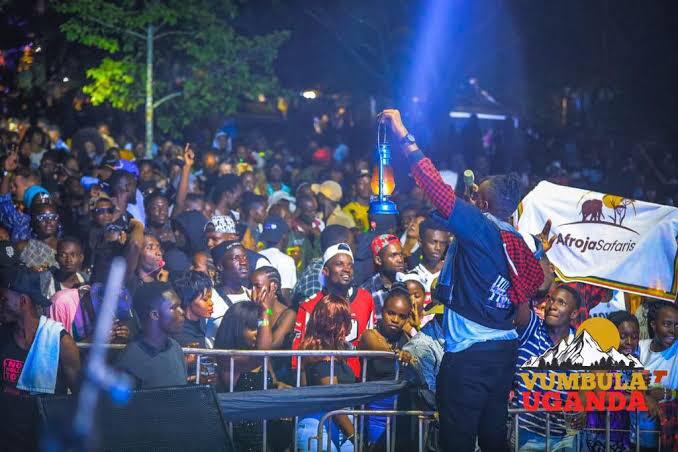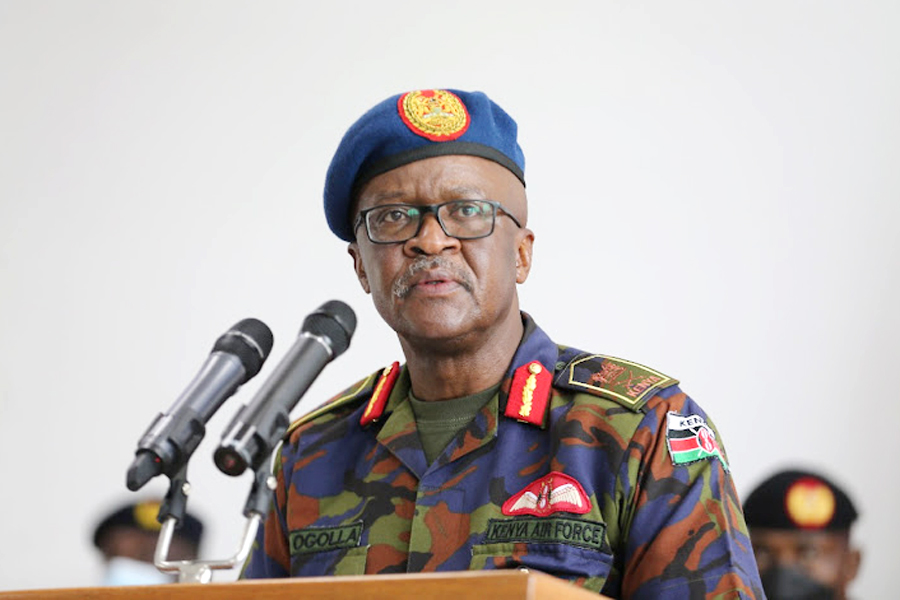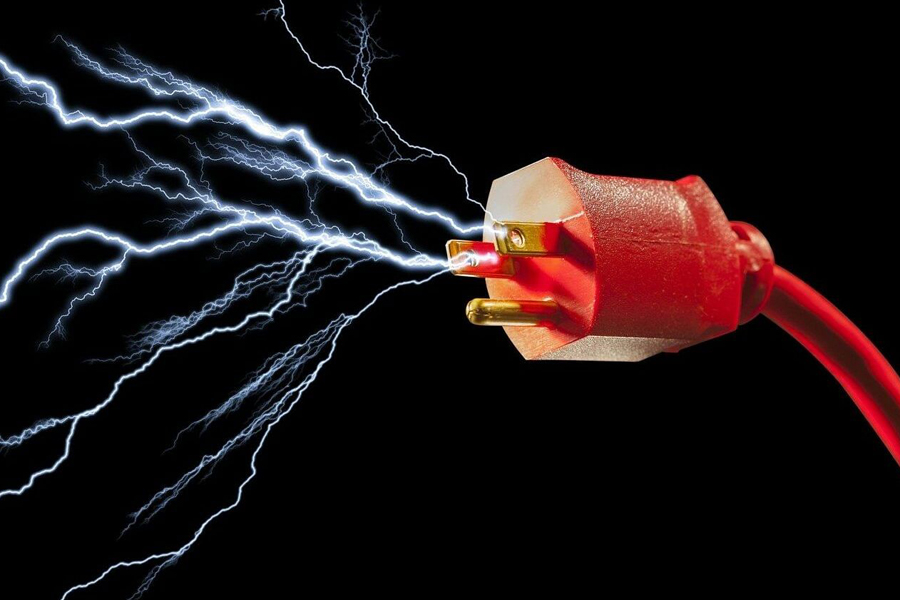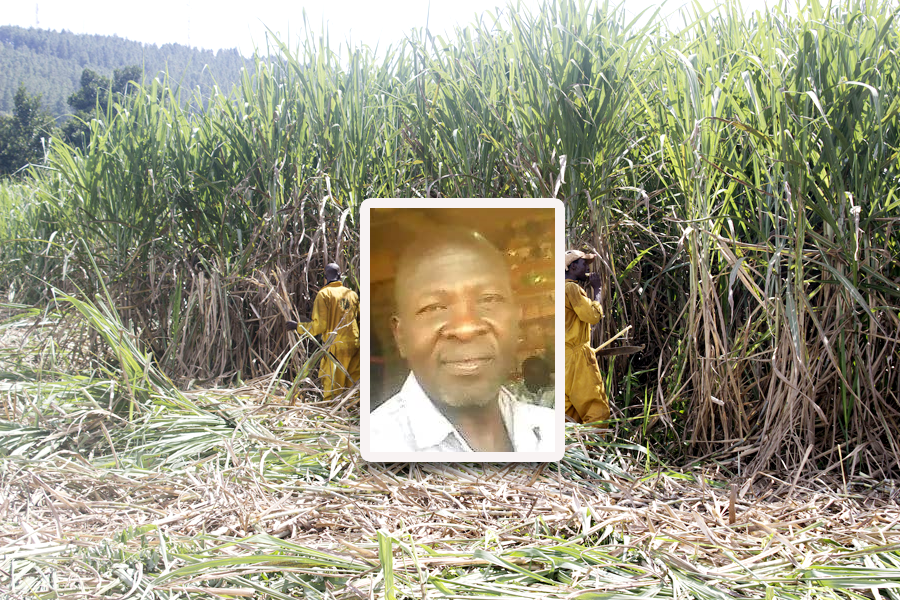Doctors warn Russian opposition leader could starve himself to death
Doctors of jailed Russian opposition leader Alexei Navalny have urged him to immediately end his hunger strike, warning that otherwise he could die.
Keep Reading
In a statement, the five say they have been shown the results of his medical tests conducted on 20 April.
"If the hunger strike continues even for a minimal amount of time, unfortunately, we will simply have no-one to treat soon," they say.
Thousands of Russians rallied on Wednesday demanding Navalny be freed.
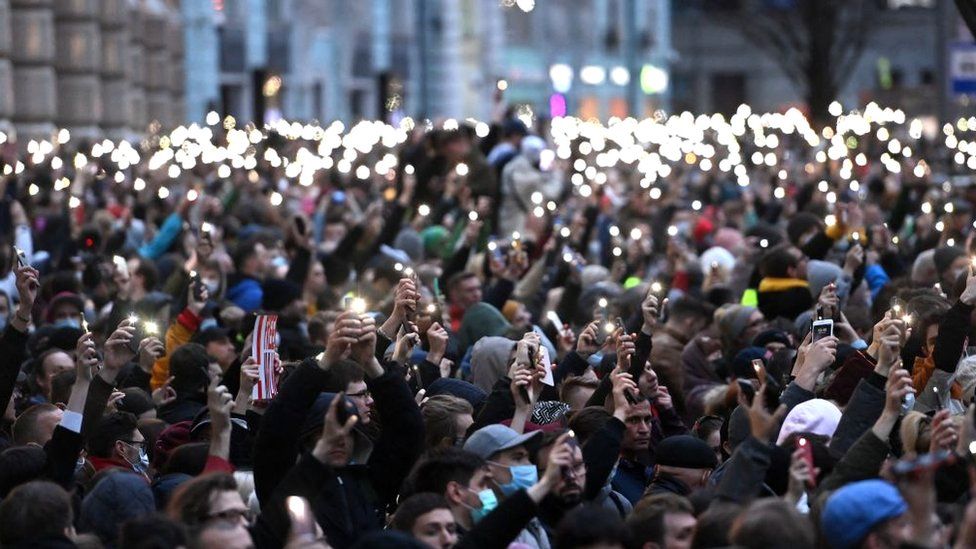
More than 1,000 people were arrested in a number of cities including the capital Moscow, according to Russia's monitoring group OVD-Info.
Navalny, 44, was jailed in February and is demanding medical attention for acute back pain and leg numbness. He's been on hunger strike for more than 20 days.
What did the doctors say?
The doctors, who have been denied access to Navalny, say their conclusions are based on the results of Tuesday's medical tests - described as more or less independent. The tests were carried out at a hospital in the city of Vladimir, just east of Moscow.
The doctors - who had treated the opposition leader before he was jailed - warn that problems with Navalny's kidneys and nervous system suggest he would die if the hunger strike goes on even for a little longer.
The physicians say Navalny should "immediately halt the hunger strike to preserve your life and health".
They are also demanding to be given access to their patient.
The Russian authorities have not publicly commented on the doctors' statement.
'Skeleton staggering round his cell'
On Monday, Navalny was moved to a prison hospital where the authorities said his condition was "satisfactory".
The FSIN prison service added that he was being examined by a doctor daily and had agreed to take vitamins.
In an Instagram post (in Russian) earlier this week, Navalny told his followers: "You'd laugh if you could see me now. A skeleton staggering round his cell."
Western countries say Navalny was poisoned with a nerve agent last August and only narrowly survived. After his transfer to intensive care in Berlin, toxicologists concluded that the poison was Russian weapons-grade Novichok.
The West blamed the Russian state for the attack, and Navalny accused President Vladimir Putin directly. The Kremlin denied any involvement and disputed the conclusion about Novichok.
Navalny was jailed in February for violating the terms of a 2014 suspended sentence for fraud. He says the case is politically motivated.




